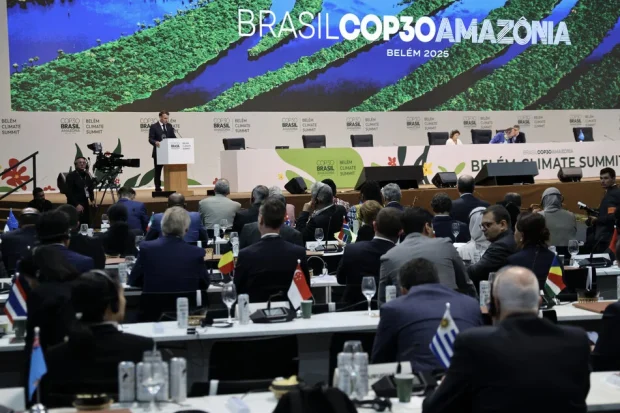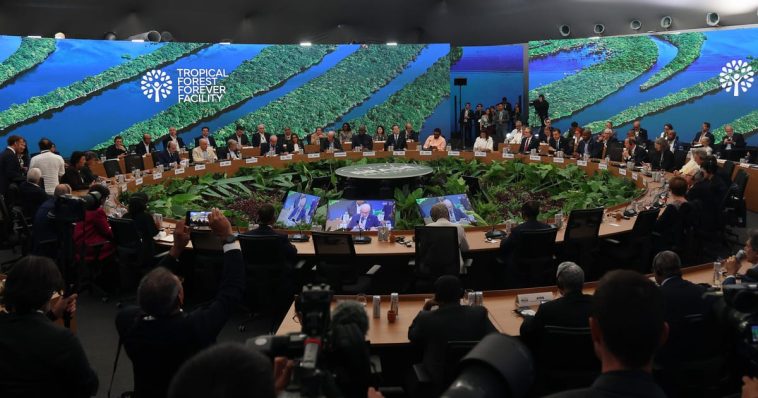Uncertainty still surrounds next year’s UN climate conference, COP31. Australia and Turkey remain locked in a tight contest. However, for 2027, the picture is clear: Ethiopia is set to host COP32. The move cements Africa’s growing role in climate diplomacy.

The announcement came on the second day of COP30 in Belem, Brazil. Richard Muyungi, chair of the Africa Group of Negotiators, told AFP that the bloc “has endorsed Ethiopia.” The Brazilian COP30 presidency confirmed the selection. Formal adoption by all nations is still required before the conference ends November 21 but officials say it’s a formality.
Rukiya Khamis, Africa senior organiser at 350.org, welcomed the choice. “We welcome COP32 in Ethiopia and look forward to elevating Africa’s climate priorities and leadership,” she said. Ethiopia’s capital, Addis Ababa, hosts the African Union headquarters and is experienced in handling major international events.
UN climate conferences rotate among five regional blocs. Each selects a host by consensus. Africa’s turn is in 2027. Ethiopia beat Nigeria, showing its diplomatic influence. Ethiopian Ambassador to Brazil, Leulseged Tadese Abebe, confirmed preparations have started. “We look forward to welcoming you to Addis Ababa for COP32,” he said.
Ethiopia, Africa’s second most populous country with about 130 million people, faces severe environmental challenges, including droughts. Still, Prime Minister Abiy Ahmed has championed green initiatives. Ethiopia banned imports of internal combustion engine vehicles and pledged to plant billions of trees. Security issues persist, however. The Tigray war (2020–2022) killed at least 600,000 people. Tensions with Afar and Eritrea remain high.
COP31 negotiations continue. Australia wants to host in Adelaide, with strong support. Turkey refuses to drop its bid for Antalya. Both countries belong to the Western Europe and Other States bloc. A deadlock could push COP31 to the UN Climate Change headquarters in Bonn, an unprecedented scenario.
Ethiopia’s selection highlights Africa’s rising influence in climate action. Yet, global disputes and local challenges show the complex road ahead for future UN climate talks.
Discover more from ULIZA LINKS NEWS
Subscribe to get the latest posts sent to your email.



